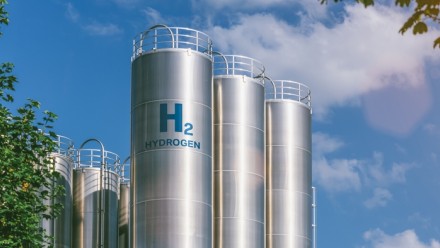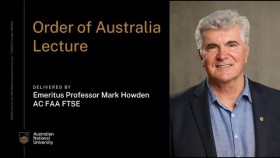ANU researcher awarded International Hydrogen Research Fellowship
Dr Bin Lu from the ANU College of Engineering, Computing and Cybernetics has been awarded an International Hydrogen Research Fellowship funded by the Australian Government. With the support of this hydrogen fellowship, Dr Lu will collaborate with Stanford University on modelling industrial hydrogen storage for zero-carbon electricity grid support.
Hydrogen can play a vital role in Australia’s transition to a renewable energy superpower. The Australian Energy Market Operator's Hydrogen Superpower scenario shows that Australia’s hydrogen demand would reach 2090 PJ by 2050, including 1530 PJ for renewable energy export. One challenge to achieving this scenario is industrial hydrogen storage, which is the storage of hydrogen for industries including green ammonia production, green steelmaking, and the manufacture of carbon-neutral transport fuels.
“Industrial hydrogen storage is an emerging energy storage approach, which can be a game changer for Australia’s energy markets. The hydrogen storage cost is one to two orders of magnitude lower than that of electricity storage. Therefore, coupling hydrogen storage with domestic and renewable energy export industries will create new industrial load centres that are interruptible, dispatchable, and responsive on timescales ranging from seconds to seasons. This will add significant flexibility to our electricity grids supporting Australia’s zero-carbon energy transition,” Dr Lu said.

Energy research is a core research strength of ANU, covering a broad portfolio ranging from the science and engineering of energy generation and energy efficiency, to energy economics, regulation, security, sociology, and policy. Professor Frank Jotzo, Head of Energy with the ANU Institute for Climate, Energy and Disaster Solutions, said that export-domestic energy integration via industrial hydrogen storage is a promising research direction.
“Dr Lu’s hydrogen fellowship research will contribute to a better understanding of how Australia’s hydrogen export industry can integrate with the domestic energy sector and facilitate an affordable and reliable transition to net-zero futures. This research can make a timely contribution to discussions in the Australian Government’s review of the National Hydrogen Strategy, underpinning Australia’s transition to a renewable energy superpower,” Professor Jotzo said.
The International Hydrogen Research Fellowship is part of the Australian Government’s International Hydrogen Research Collaboration Program. This program supports research in areas of critical national importance by outstanding early to mid-career researchers in Australia and provides the opportunity to partner with world-class researchers overseas.
The Program Manager, Dan O’Sullivan, said Dr Lu is part of a very high-quality group of Australian researchers selected through a competitive application process. “As stated in the Australian Hydrogen Research Network’s 2023 report, one of Australia’s critical hydrogen research questions is ‘How can renewable hydrogen systems best be integrated into current energy systems during the energy transition?’. Dr Lu’s research will answer this question by investigating the techno-economic potential of industrial hydrogen storage to provide electricity network support through high-resolution energy modelling. This research supports national and international research collaboration on hydrogen energy technologies assessment and R&D, which will help place Australia at the forefront of hydrogen integration research.”
Dr Lu’s hydrogen fellowship research commenced in October 2023. Dr Lu will undertake an overseas trip to Stanford University in 2024, participating in experiments of 100% renewable technologies, including hydrogen electrolysers, storage, and fuel cells, at Stanford’s microgrid living laboratory in Half Moon Bay, California.











